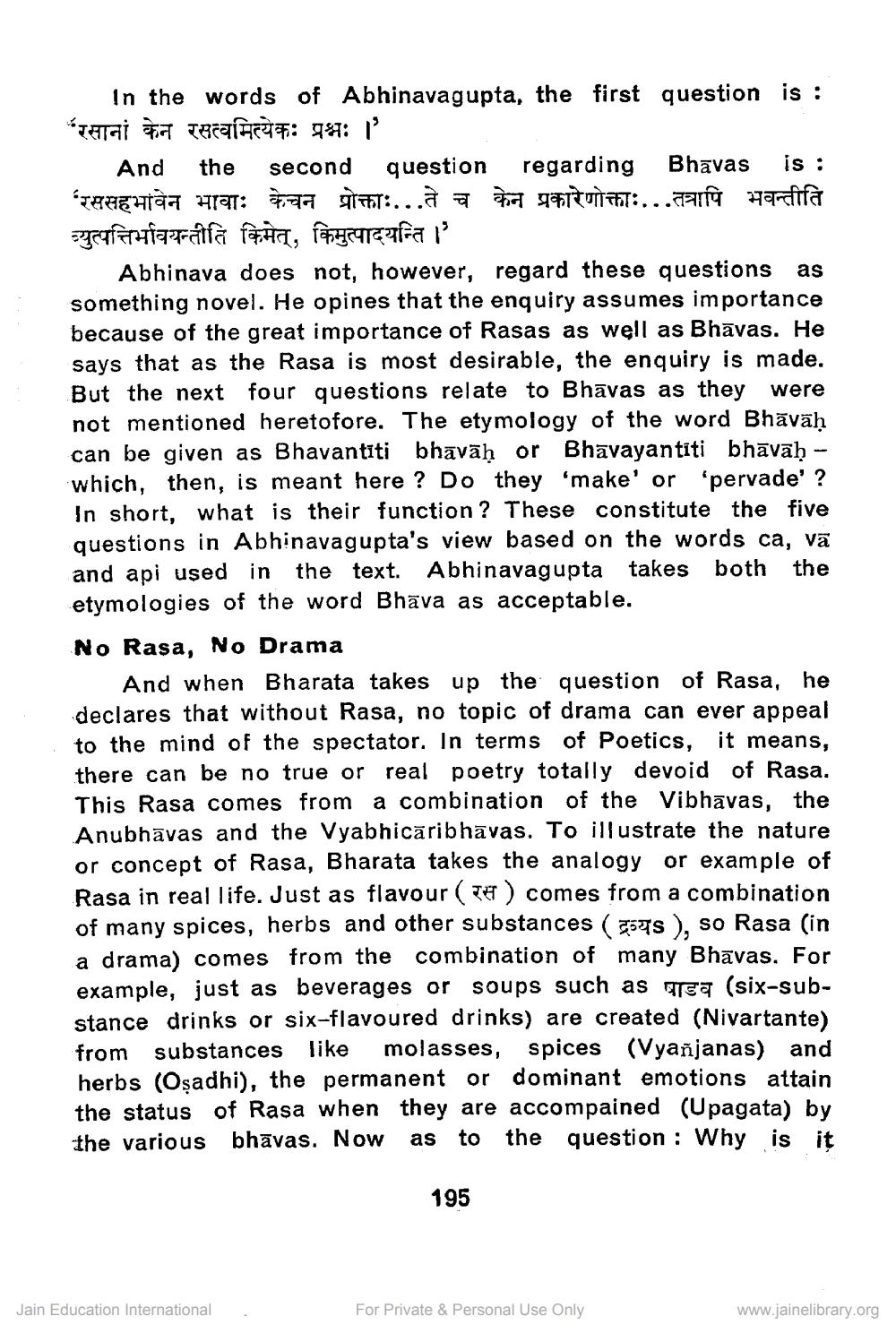________________
In the words of Abhinavagupta, the first question is: " रसानां केन रसत्वमित्येकः प्रश्नः ।'
And the second question regarding Bhāvas is : 'रस सहभावेन भावाः केचन प्रोक्ताः ... ते च केन प्रकारेणोक्ताः ... तत्रापि भवन्तीति व्युत्पत्तिर्भावयन्तीति किमेत्, किमुत्पादयन्ति । '
Abhinava does not, however, regard these questions as something novel. He opines that the enquiry assumes importance because of the great importance of Rasas as well as Bhāvas. He says that as the Rasa is most desirable, the enquiry is made. But the next four questions relate to Bhavas as they were not mentioned heretofore. The etymology of the word Bhāvāḥ can be given as Bhavantiti bhavaḥ or Bhavayantiti bhāvāḥ which, then, is meant here? Do they 'make' or 'pervade' ? In short, what is their function? These constitute the five questions in Abhinavagupta's view based on the words ca, vä and api used in the text. Abhinavagupta takes both the etymologies of the word Bhāva as acceptable.
No Rasa, No Drama
And when Bharata takes up the question of Rasa, he declares that without Rasa, no topic of drama can ever appeal to the mind of the spectator. In terms of Poetics, it means, there can be no true or real poetry totally devoid of Rasa. This Rasa comes from a combination of the Vibhavas, the Anubhavas and the Vyabhicaribhavas. To illustrate the nature or concept of Rasa, Bharata takes the analogy or example of Rasa in real life. Just as flavour () comes from a combination of many spices, herbs and other substances (s), so Rasa (in a drama) comes from the combination of many Bhavas. For example, just as beverages or soups such as a (six-substance drinks or six-flavoured drinks) are created (Nivartante) from substances like molasses, spices (Vyañjanas) and herbs (Oṣadhi), the permanent or dominant emotions attain the status of Rasa when they are accompained (Upagata) by the various bhāvas. Now as to the question: Why is it
Jain Education International
195
For Private & Personal Use Only
www.jainelibrary.org




